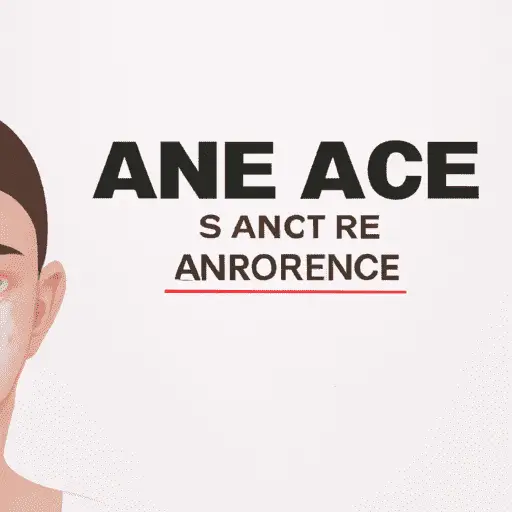-
Table of Contents
- Signs You Should Visit a Dermatologist for Acne
- Key Takeaways
- Understanding Acne and When to Seek Professional Help
- Severe Acne
- Acne That Leaves Scars
- Acne That Doesn’t Respond to Over-the-Counter Treatments
- Acne That Causes Emotional Distress
- FAQ Section
- What does a dermatologist do for acne?
- When should I see a dermatologist for acne?
- Can a dermatologist cure acne?
- What can I expect at a dermatologist appointment for acne?
- How much does it cost to see a dermatologist for acne?
- Conclusion: The Importance of Seeking Professional Help for Acne
- Further Analysis
Signs You Should Visit a Dermatologist for Acne

[youtubomatic_search]
Key Takeaways
- Acne is a common skin condition that can be effectively managed with the help of a dermatologist.
- Signs that you should visit a dermatologist for acne include severe acne, acne that leaves scars, and acne that doesn’t respond to over-the-counter treatments.
- Dermatologists can provide a range of treatments for acne, including prescription medications and procedures like chemical peels and laser therapy.
- Visiting a dermatologist for acne can also help prevent future breakouts and improve the overall health of your skin.
- It’s important to seek professional help if your acne is causing you emotional distress or affecting your quality of life.
Understanding Acne and When to Seek Professional Help
Acne is a common skin condition that affects millions of people worldwide. While it’s most prevalent among teenagers, it can affect people of all ages. Acne occurs when the pores of your skin become blocked with oil, dead skin cells, and bacteria. This can result in a variety of blemishes, including blackheads, whiteheads, pimples, and cysts.
While mild acne can often be managed with over-the-counter treatments, there are certain signs that indicate you should seek the help of a dermatologist. These include severe acne, acne that leaves scars, acne that doesn’t respond to over-the-counter treatments, and acne that is causing you emotional distress or affecting your quality of life.
Severe Acne
Severe acne is characterized by deep cysts, inflammation, and extensive skin damage. It can result in painful, large blemishes that are resistant to over-the-counter treatments. According to the American Academy of Dermatology, severe acne requires professional treatment to prevent scarring and other long-term skin damage.
Acne That Leaves Scars
Acne can leave both physical and emotional scars. Physically, it can result in permanent marks or indentations on the skin. Emotionally, it can lead to feelings of embarrassment, low self-esteem, and depression. If your acne is leaving scars, it’s important to seek the help of a dermatologist who can provide treatments to reduce scarring and improve the appearance of your skin.
Acne That Doesn’t Respond to Over-the-Counter Treatments
Over-the-counter treatments can be effective for mild to moderate acne. However, if your acne isn’t improving after two to three months of using these products, it’s time to visit a dermatologist. They can provide stronger, prescription-strength treatments that can be more effective in managing your acne.
Acne That Causes Emotional Distress
Acne can have a significant impact on your emotional well-being. If your acne is causing you to feel embarrassed, anxious, or depressed, it’s important to seek professional help. A dermatologist can provide effective treatments to improve your skin and help boost your self-confidence.
FAQ Section
What does a dermatologist do for acne?
A dermatologist can provide a range of treatments for acne, including prescription medications, chemical peels, laser therapy, and other procedures. They can also provide advice on skincare routines and lifestyle changes that can help manage acne.
When should I see a dermatologist for acne?
You should see a dermatologist for acne if your acne is severe, if it’s leaving scars, if it’s not responding to over-the-counter treatments, or if it’s causing you emotional distress.
Can a dermatologist cure acne?
While there’s no cure for acne, a dermatologist can provide treatments that can significantly reduce your acne and prevent future breakouts. They can also provide treatments to reduce scarring and improve the appearance of your skin.
What can I expect at a dermatologist appointment for acne?
At a dermatologist appointment for acne, the dermatologist will examine your skin, ask about your medical history and any treatments you’ve tried, and discuss your treatment options. They may also take a skin sample or perform other tests to determine the cause of your acne.
How much does it cost to see a dermatologist for acne?
The cost to see a dermatologist for acne can vary depending on your location, the dermatologist’s experience, and the treatments provided. It’s best to contact the dermatologist’s office directly for an accurate cost estimate.
Conclusion: The Importance of Seeking Professional Help for Acne
Acne is a common skin condition that can be effectively managed with the help of a dermatologist. If your acne is severe, if it’s leaving scars, if it’s not responding to over-the-counter treatments, or if it’s causing you emotional distress, it’s important to seek professional help. A dermatologist can provide a range of treatments to improve your skin and help boost your self-confidence. Don’t let acne control your life – take the first step towards clearer skin by scheduling an appointment with a dermatologist today.
[youtubomatic_search]
Further Analysis
Acne is more than just a skin condition – it’s a complex issue that can have a significant impact on your physical and emotional well-being. By understanding the signs that indicate you should visit a dermatologist for acne, you can take control of your skin health and improve your quality of life. Remember, it’s never too late to seek professional help for acne. With the right treatment, you can achieve clearer skin and a healthier, happier you.

Leave a Reply